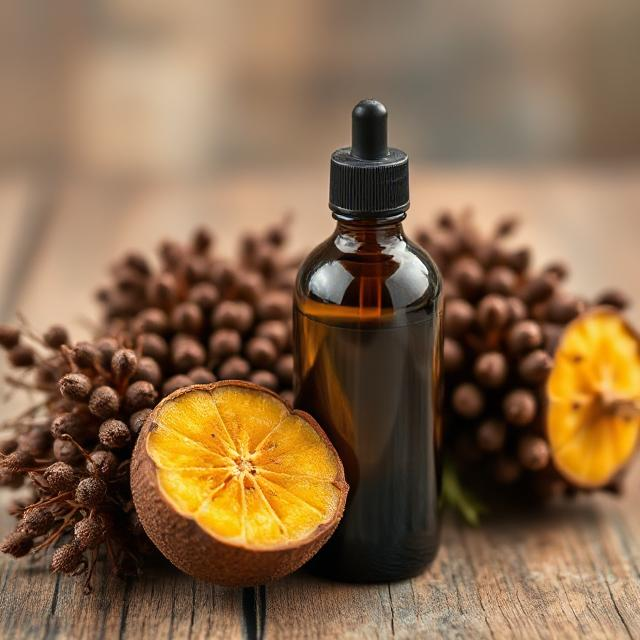Introduction to Organic Castor Oil
Organic castor has been a staple in natural health and beauty routines for centuries. Derived from the seeds of the castor plant (Ricinus communis), this versatile oil is celebrated for its numerous benefits and wide range of applications. Unlike conventional castor oil, organic castor is produced without the use of synthetic pesticides, fertilizers, or genetically modified organisms (GMOs), making it a purer and more eco-friendly choice.
The castor plant is native to tropical regions of Africa and India, but it is now cultivated worldwide. The oil is extracted through a cold-pressing process, which helps retain its natural nutrients and therapeutic properties. Rich in ricinoleic acid, a unique fatty acid with potent anti-inflammatory and antimicrobial properties, castor oil is a powerhouse of natural goodness.
In this comprehensive guide, we will explore the various benefits, uses, and precautions associated with organic. Whether you’re looking to enhance your skincare routine, promote hair growth, or explore its medicinal applications, this article will provide you with all the information you need to make the most of this remarkable oil.
The History of Castor Oil

The use of castor oil dates back thousands of years, with evidence of its application found in ancient Egyptian, Greek, and Roman civilizations. The Egyptians used castor oil as a natural remedy for various ailments, including eye irritation and skin conditions. They also burned castor oil in lamps for its clean and bright flame. organic castor oil
In ancient Greece, castor oil was known as “kiki” and was used for its laxative properties. The famous Greek physician Hippocrates recommended it for treating a variety of health issues. Similarly, in ancient Rome, castor oil was used as a purgative and was believed to have cleansing properties for the body.
The castor plant’s popularity spread to India, where it became an integral part of Ayurvedic medicine. Ayurvedic practitioners used castor oil to balance the body’s doshas (energies) and promote overall health. It was also used in traditional Indian hair care practices to nourish and strengthen hair.
In the modern era, castor oil has gained recognition for its industrial applications, particularly in the production of lubricants, plastics, and biofuels. However, its therapeutic and cosmetic uses continue to be highly valued, especially in the context of organic and natural health practices.
The Production Process of Organic Castor Oil
The production of organic begins with the cultivation of the castor plant. Organic farming practices are employed, which means no synthetic pesticides, herbicides, or fertilizers are used. This ensures that the castor seeds are free from harmful chemical residues.
Once the castor seeds are harvested, they undergo a cold-pressing process to extract the oil. Cold-pressing involves mechanically pressing the seeds at low temperatures, which helps preserve the oil’s natural nutrients and therapeutic properties. This method contrasts with conventional extraction methods that may involve the use of heat or chemical solvents, which can degrade the oil’s quality.
After extraction, the oil is filtered to remove any impurities, resulting in a clear and pure product. Organic castor is typically unrefined, meaning it retains its natural color, scent, and nutrients. This makes it a superior choice for those seeking a high-quality, natural product.
It’s important to note that organic certification ensures that the entire production process adheres to strict organic standards. This includes not only the cultivation of the castor plant but also the processing and packaging of the oil. When purchasing organic, look for certifications from reputable organizations to ensure you’re getting a genuine product.
The Chemical Composition of Organic Castor Oil
Organic castor oil is composed of a unique blend of fatty acids, with ricinoleic acid being the most prominent. Ricinoleic acid makes up approximately 85-90% of the oil’s composition and is responsible for many of its therapeutic properties. This fatty acid has been shown to have anti-inflammatory, antimicrobial, and analgesic effects, making it a valuable component in natural remedies.
In addition to ricinoleic acid, organic castor contains other fatty acids, such as oleic acid, linoleic acid, and stearic acid. These fatty acids contribute to the oil’s moisturizing and nourishing properties, making it an excellent choice for skincare and hair care.
The oil also contains small amounts of vitamin E, a powerful antioxidant that helps protect the skin and hair from damage caused by free radicals. Vitamin E also promotes skin healing and reduces the appearance of scars and blemishes.
The combination of these components makes organic castor oil a versatile and potent natural remedy. Its unique chemical composition allows it to penetrate deeply into the skin and hair, delivering nutrients and promoting overall health.
The Benefits of Organic Castor Oil for Skin
Organic castor oil is a popular choice for skincare due to its moisturizing, anti-inflammatory, and antimicrobial properties. Here are some of the key benefits it offers for the skin:
- Deep Moisturization: Organic castor is an excellent emollient, meaning it helps to lock in moisture and keep the skin hydrated. Its thick consistency allows it to form a protective barrier on the skin, preventing moisture loss and leaving the skin soft and supple.
- Acne Treatment: The antimicrobial properties of organic castor oil make it effective in combating acne-causing bacteria. Additionally, its anti-inflammatory properties help reduce redness and swelling associated with acne. Regular use of castor oil can help clear up acne and prevent future breakouts.
- Anti-Aging: The antioxidants in organic castor oil, particularly vitamin E, help protect the skin from damage caused by free radicals. This can reduce the appearance of fine lines and wrinkles, promoting a more youthful complexion. The oil’s moisturizing properties also help plump up the skin, reducing the visibility of aging signs.
- Scar and Stretch Mark Reduction: Organic castor oil’s ability to promote skin healing makes it effective in reducing the appearance of scars and stretch marks. Regular massage with the oil can improve skin elasticity and encourage the regeneration of healthy skin cells, leading to smoother and more even-toned skin.
- Sunburn Relief: The anti-inflammatory properties of organic castor oil can help soothe sunburned skin. Applying a thin layer of the oil to affected areas can reduce redness, pain, and peeling, promoting faster healing.
- Eczema and Psoriasis Management: Organic castor oil’s moisturizing and anti-inflammatory properties make it beneficial for managing skin conditions like eczema and psoriasis. It helps to reduce itching, redness, and inflammation, providing relief from discomfort and promoting skin healing.
The Medicinal Uses of Organic Castor Oil
Organic castor oil has been used for centuries as a natural remedy for various health issues. Here are some of its key medicinal uses:
Laxative: Organic castor oil is perhaps best known for its use as a natural laxative. When ingested, it stimulates the intestines, promoting bowel movements and relieving constipation. It is important to use organic castor oil as a laxative only under the guidance of a healthcare professional, as improper use can lead to side effects.
Pain Relief: The anti-inflammatory properties of organic castor oil make it effective in relieving pain and inflammation associated with conditions like arthritis, muscle soreness, and joint pain. Applying the oil topically to affected areas can provide soothing relief.
Immune System Support: Organic castor oil has been shown to have immune-boosting properties. It helps to stimulate the lymphatic system, which plays a crucial role in the body’s immune response. Regular use of castor oil packs (applying the oil to the skin and covering it with a warm cloth) can support overall immune health.
Wound Healing: The antimicrobial and anti-inflammatory properties of organic castor oil make it effective in promoting wound healing. Applying the oil to minor cuts, scrapes, and burns can help prevent infection, reduce inflammation, and speed up the healing process.
Menstrual Cramp Relief: Organic castor oil’s anti-inflammatory properties can help alleviate menstrual cramps. Applying a castor oil pack to the lower abdomen can provide soothing relief and reduce discomfort during menstruation.
Detoxification: Organic castor oil is believed to have detoxifying properties. It helps to stimulate the liver and improve digestion, promoting the elimination of toxins from the body. Regular use of castor oil packs can support the body’s natural detoxification processes.
How to Use Organic Castor Oil for Skin and Hair
Organic castor oil can be used in various ways to benefit the skin and hair. Here are some practical tips for incorporating it into your routine:
Skin Moisturizer: Apply a small amount of organic castor oil to clean, damp skin. Gently massage it in until fully absorbed. For extra hydration, mix the oil with a lighter carrier oil, such as jojoba or almond oil.
Acne Treatment: Dab a small amount of organic castor oil onto acne-prone areas using a cotton swab. Leave it on overnight and rinse off in the morning. Repeat daily until the acne clears up.
Anti-Aging Serum: Mix a few drops of organic castor oil with your favorite facial oil or moisturizer. Apply it to your face and neck before bed to promote a youthful complexion.
Scar and Stretch Mark Reduction: Massage organic castor oil into the affected areas using circular motions. Leave it on overnight and rinse off in the morning. Repeat daily for best results.
Hair Mask: Warm a small amount of organic castor oil and apply it to your scalp and hair. Massage it in thoroughly and leave it on for at least 30 minutes (or overnight for deep conditioning). Rinse out with a gentle shampoo.
hair Growth Treatment: Mix organic castor oil with a lighter carrier oil (such as coconut or olive oil) and apply it to your scalp. Massage it in for 5-10 minutes to stimulate blood flow. Leave it on for at least 30 minutes before rinsing out.
Dandruff Treatment: Apply organic castor oil to your scalp and massage it in gently. Leave it on for at least 30 minutes before rinsing out. Repeat 2-3 times a week to reduce dandruff.
Precautions and Side Effects of Organic Castor Oil
While organic castor oil is generally safe for most people, it’s important to be aware of potential precautions and side effects:
Allergic Reactions: Some individuals may be allergic to castor oil. Before using it topically, perform a patch test by applying a small amount of the oil to a small area of skin. If you experience any irritation, redness, or itching, discontinue use.
: Organic castor oil should only be ingested under the guidance of a healthcare professional. Overuse or improper use can lead to side effects such as diarrhea, abdominal cramps, and nausea.
Pregnancy and Breastfeeding: Pregnant and breastfeeding women should avoid ingesting castor oil, as it can stimulate uterine contractions and potentially lead to premature labor. Topical use is generally considered safe, but it’s best to consult with a healthcare provider before use.
Eye Irritation: Avoid getting organic castor oil in your eyes, as it can cause irritation. If accidental contact occurs, rinse your eyes thoroughly with water.
Skin Sensitivity: Individuals with sensitive skin may find that organic castor oil is too heavy or greasy. In such cases, it can be diluted with a lighter carrier oil to reduce its thickness.
Medication Interactions: Organic castor oil may interact with certain medications, particularly those that affect the digestive system. If you are taking any medications, consult with a healthcare professional before using castor oil.
Choosing the Right Organic Castor Oil
When selecting organic castor oil, it’s important to choose a high-quality product to ensure you’re getting the full benefits. Here are some tips for choosing the right organic castor oil:
Certification: Look for organic castor oil that is certified by a reputable organization, such as USDA Organic or Ecocert. This ensures that the oil has been produced according to strict organic standards.
Cold-Pressed: Choose cold-pressed organic castor oil, as this method of extraction preserves the oil’s natural nutrients and therapeutic properties.
Unrefined: Opt for unrefined organic castor oil, as it retains its natural color, scent, and nutrients. Refined oils may have undergone chemical processing, which can reduce their quality.
packaging: Organic castor oil should be packaged in a dark glass bottle to protect it from light and air, which can degrade its quality. Avoid oils packaged in plastic bottles, as they may leach harmful chemicals into the oil.
Reputation: Purchase organic castor oil from a reputable brand or supplier. Read reviews and do some research to ensure you’re getting a genuine and high-quality product.
DIY Recipes with Organic Castor Oil
Organic castor oil can be used in a variety of DIY recipes for skincare, hair care, and more. Here are some simple and effective recipes to try:
- Castor Oil Face Mask: Mix 1 tablespoon of organic castor oil with 1 tablespoon of raw honey. Apply the mixture to your face and leave it on for 15-20 minutes. Rinse off with warm water for soft, glowing skin.
- Castor Oil Hair Mask: Combine 2 tablespoons of organic castor oil with 1 tablespoon of coconut oil and 1 tablespoon of aloe vera gel. Apply the mixture to your scalp and hair, leave it on for 30 minutes, and rinse out with shampoo for deeply conditioned hair.
- Castor Oil Lip Balm: Melt 1 tablespoon of beeswax and mix it with 1 tablespoon of organic castor oil and a few drops of your favorite essential oil (such as peppermint or lavender). Pour the mixture into a lip balm container and let it set for a nourishing lip treatment.
- Castor Oil Body Scrub: Mix 1/2 cup of sugar with 1/4 cup of organic castor oil and a few drops of essential oil (such as citrus or lavender). Use the scrub in the shower to exfoliate and moisturize your skin.
- Castor Oil Cuticle Treatment: Apply a small amount of organic castor oil to your cuticles and massage it in. Leave it on overnight to soften and nourish your cuticles.
- Castor Oil Eyelash Serum: Apply a small amount of organic castor oil to your eyelashes using a clean mascara wand. Leave it on overnight to promote longer, thicker lashes.
The Environmental Impact of Organic Castor Oil
Organic castor oil is not only beneficial for personal health and beauty but also for the environment. Here are some ways in which organic castor oil contributes to environmental sustainability:
- Organic Farming: Organic castor oil is produced using organic farming practices, which avoid the use of synthetic pesticides, herbicides, and fertilizers. This helps to protect the soil, water, and biodiversity, promoting a healthier ecosystem.
- Biodegradable: Organic castor oil is biodegradable, meaning it breaks down naturally in the environment without causing harm. This makes it a more eco-friendly choice compared to synthetic oils and chemicals.
- Renewable Resource: The castor plant is a renewable resource that can be grown and harvested sustainably. It requires relatively little water and can thrive in arid conditions, making it a resilient and sustainable crop.
- Non-Toxic: Organic castor oil is non-toxic and safe for use in various applications, from personal care to industrial uses. Its non-toxic nature reduces the risk of environmental contamination and harm to wildlife.
- Support for Local Communities: Many organic castor oil producers work with local farmers and communities, providing them with fair wages and sustainable livelihoods. This helps to support local economies and promote social sustainability.
Conclusion
Organic castor oil is a versatile and powerful natural remedy with a wide range of benefits for the skin, hair, and overall health. Its rich composition of fatty acids, antioxidants, and nutrients makes it an excellent choice for those seeking a natural and eco-friendly alternative to synthetic products.
From promoting hair growth and moisturizing the skin to relieving pain and supporting the immune system, organic castor oil has countless applications. Its long history of use in traditional medicine and modern-day popularity attest to its effectiveness and versatility.
When choosing organic castor oil, it’s important to select a high-quality, certified product to ensure you’re getting the full benefits. Whether you’re using it in your skincare routine, hair care regimen, or as a natural remedy, organic castor oil is a valuable addition to any natural health and beauty toolkit.
By incorporating organic castor oil into your daily routine, you can experience its numerous benefits while also supporting environmental sustainability. So why not give it a try and see the difference it can make for your skin, hair, and overall well-being?










